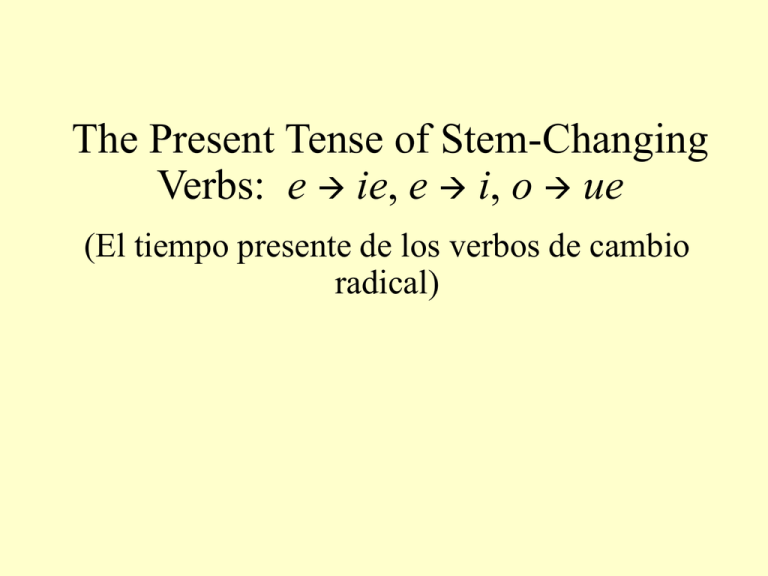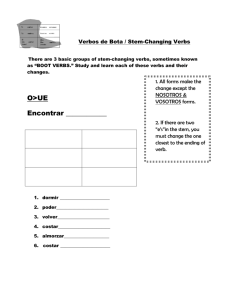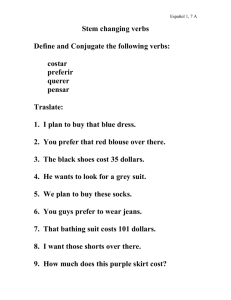Stem-changing verbs
advertisement

The Present Tense of Stem-Changing Verbs: e ie, e i, o ue (El tiempo presente de los verbos de cambio radical) There is a fairly large group of verbs in Spanish that undergo changes in their stem when conjugated in the present tense. These changes occur only in the first and second persons singular and third persons singular and plural. When a line is drawn around the forms that change, the resulting shape vaguely resembles a boot or high-top shoe; thus, these verbs are sometimes informally called “boot” or “shoe” verbs. There are three types or classes of “boot” verbs. Type 1: e ie entender = to understand entender entiendo entiendes entiende entendemos entienden The stem undergoes the change only when stressed. other common e ie verbs: empezar, comenzar to begin pensar (+ infinitive) to think; to plan (to do something) perder to lose preferir to prefer querer to want, to love tener, venir The verbs tener and venir are what might be called partial stem-changing verbs; the yo forms do not have the stem change, but they do have an irregularity. tengo tienes tiene Tengo exámenes mañana. vengo vienes viene Vengo de la biblioteca. tenemos tienen I have exams tomorrow. venimos vienen I’m coming from the library. Type 2: e i servir = to serve servir sirvo sirves sirve servimos sirven Note: All e i verbs are -ir verbs. Here are some other common e i verbs: medir to measure, to be a certain height pedir to ask for, to request repetir to repeat, to have a second helping teñir to dye, to color Type 3: o ue almorzar = to have lunch almorzar almuerzo almuerzas almuerza almorzamos almuerzan The verb jugar, to play (games or sports), follows the same pattern as o ue verbs, but the change is u ue. jugar juego juegas juega jugamos juegan Here are some other common o ue verbs: costar* dormir encontrar poder recordar soñar (con) volver to cost to sleep to find to be able; can to remember to dream (about) to return, to come back *Costar is normally used only in the third persons. preferir prefiero prefieres prefiere preferimos prefieren Preferir, of course, means to prefer. ¿Quiere un sándwich de pollo? No señor, prefiero una hamburguesa. FIN





